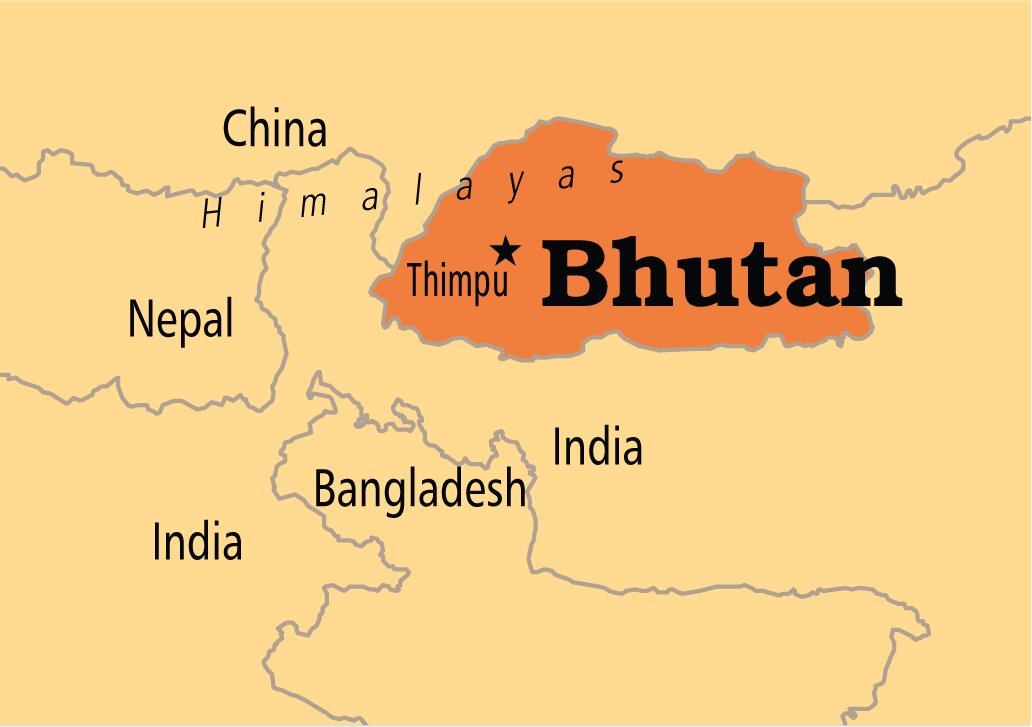International Relations
MoU between India and Bhutan
- 04 Jun 2020
- 5 min read
Why in News
The Union Cabinet has given its approval for signing of a Memorandum of Understanding (MoU) with Bhutan for cooperation in the field of environment protection and management of natural resources.
- The MoU will enable establishment and promotion of closer and long-term cooperation in environment protection and management of natural resources on the basis of equity, reciprocity and mutual benefits, taking into account the laws and legal provisions in each country.
Key Points
- Background:
- A Memorandum of Understanding (MoU) was signed between the Central Pollution Control Board (CPCB) of India and the National Environment Commission (NEC) of the Government of Bhutan in 2013.
- This MoU expired in 2016.
- Noting the benefits of the earlier MoU, both sides have decided to continue cooperation and collaboration in the field of environment to strengthen the Indo-Bhutan relationship.
- Details of the New MoU:
- Time Period: The MoU shall enter into force on the date of signature and shall continue to remain in force for a period of ten years.
- Areas of Cooperation: Air, Waste, Chemical Management, Climate Change and Any other areas jointly decided upon.
- Exchange of Best Practices:
- The MoU shall facilitate exchange of experiences, best practices and technical knowledge through both public and private sectors and research institutions for sustainable development.
- Joint Working Group:
- It provides for joint projects in areas of mutual interest.
- It provides for holding of Joint Working Group / bilateral meetings to review and analyze the progress of activities and keeping their respective ministries/agencies, duly informed of progress and achievements.
- Indo-Bhutan Treaty of Peace and Friendship, 1949
- The Treaty provides for, among other things, perpetual peace and friendship, free trade and commerce and equal justice to each other’s citizens.
- In 2007 the treaty was re-negotiated, and provisions were included to encourage Bhutan’s sovereignty, abolishing the need to take India’s guidance on foreign policy.
- Multilateral Partnership:
- Both of them share multilateral forums such as South Asian Association for Regional Cooperation (SAARC), BBIN (Bangladesh, Bhutan, India, and Nepal), BIMSTEC (Bay of Bengal Initiative for Multi Sectoral Technical and Economic Cooperation) etc.
- Hydropower Cooperation:
- This hydropower cooperation comes under the 2006 Agreement on Cooperation in Hydropower. Under a protocol to this agreement, India has agreed to assist Bhutan in the development of a minimum of 10,000 MW of hydropower and import of surplus electricity from the same by 2020.
- Trade:
- The trade between the two countries is governed by the India Bhutan Trade and Transit Agreement 1972 which was last renewed in November 2016.
- The agreement establishes a free-trade regime between the two countries and also provides for duty-free transit of Bhutanese exports to third countries.
- Economic Assistance:
- India is Bhutan’s leading development partner. Since the launch of the First Five Year Plan of Bhutan in 1961, India has been extending financial support to Bhutan’s FYPs. India has allotted Rs 4500 crore to Bhutan’s 12th FYP (2018-23).
- Educational and Cultural Cooperation:
- A large number of college going Bhutanese students study in India. The Government of India provides a number of scholarships to Bhutanese students.
Way Forward
- Environment and natural resources are the vital areas to bring sustainable development for both the countries. Being neighbours, it is necessary that both nations continuously recognise the value of their rich resources and must work towards bringing environmental sustainability through mutual collaborations. This would further facilitate the Indo-Bhutan relationship towards peace and development.







